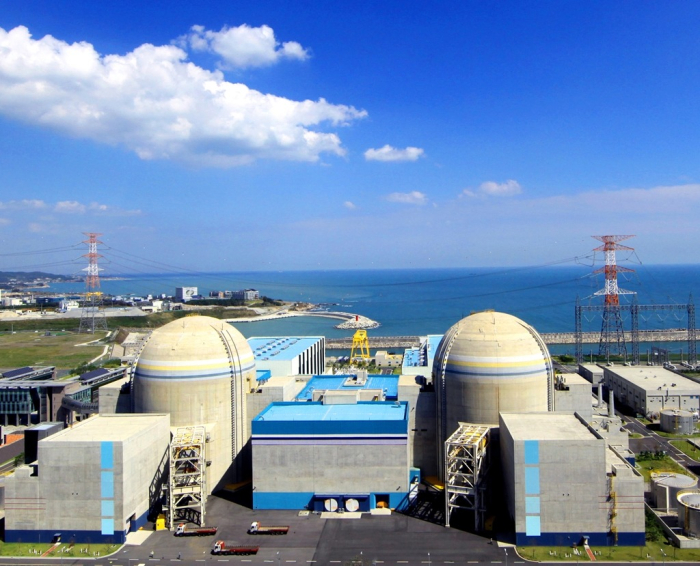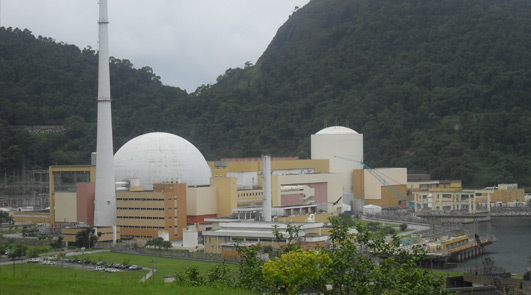Energy
US court rules in favor of Korea's nuclear reactor exports
The ruling may spur Poland and the Czech Republic to import Korean nuclear reactors, although final permission is still needed
By Sep 19, 2023 (Gmt+09:00)
4
Min read
Most Read
LG Chem to sell water filter business to Glenwood PE for $692 million


Kyobo Life poised to buy Japan’s SBI Group-owned savings bank


KT&G eyes overseas M&A after rejecting activist fund's offer


StockX in merger talks with Naver’s online reseller Kream


Mirae Asset to be named Korea Post’s core real estate fund operator



A US district court on Monday dismissed Westinghouse Electric Corp.’s lawsuit against South Korean state-run companies to block their nuclear reactor exports, raising hopes that the country can sell atomic furnaces to overseas markets.
The District Court for the District of Columbia rejected complaints by Westinghouse against Korea Hydro & Nuclear Power Co. (KHNP) and its parent Korea Electric Power Corp. (KEPCO), saying the US nuclear power plant equipment supplier is ineligible to sue before handling intellectual property issues, key matters of the suit.
"The court holds that Westinghouse lacks a private cause of action to enforce Part 810 and therefore has failed to state a claim," the ruling was quoted as saying by South Korea’s Yonhap News Agency.
Part 810 is a US government control that governs the exports of technology for the development, production or use of reactors, equipment and materials. The regulation requires permission from the US Department of Energy to transfer certain nuclear power plant technologies subject to export controls to other countries.
Westinghouse filed the litigation to prevent KHNP from exporting South Korean nuclear reactor model APR1400 to Poland, the Czech Republic and Saudi Arabia without US approval in October 2022. The US company argued that the atomic furnace is based on its own technology, which is subject to US export controls under the Atomic Energy Act.
“Defendants have previously admitted, and agreed in prior contracts with Westinghouse, that defendants’ delivery of technical information, including specifically APR1400 technical information, outside the Republic of Korea was subject to Part 810,” Westinghouse said in its complaint at that time.
“As a result, Westinghouse previously sought and obtained a specific authorization from the United States Department of Energy (DOE) to enable Defendants to retransfer technical information regarding Korean Reactor Designs, including specifically APR1400 technical information, to the United Arab Emirates.”
In response, KHNP claimed that the Atomic Energy Act does not contemplate private enforcement and gives the attorney general exclusive authority to enforce relevant provisions. Part 810 is designed to implement the act.
GREEN LIGHT
Poland and the Czech Republic are likely to import South Korea’s nuclear reactors with the ruling, industry sources in Seoul said.
Those European countries were known to prefer South Korean reactors, considering their strong performance and low prices, those sources said. But Poland and the Czech Republic were keeping an eye on the dispute between KHNP and Westinghouse as the Central European nations heavily rely on the US in economic and political arenas.
Poland has started an approval process to build a nuclear power plant consisting of South Korean reactors.
KHNP plans to submit a final bid for the Czech Republic’s nuclear power plant project in the near term. The South Korean company is competing against Westinghouse and the French state-owned Électricité de France S.A. (EDF) for the deal.
The US Energy Department, however, rejected KHNP’s plan to export nuclear reactors to the country in Central Europe in April.
“We will comprehensively consider the friendly relationship between South Korea and the US, as well as export control regulations,” said KHNP on the rejection.
The company was reportedly to aim to submit a final bid first and report it to the US authority later, according to sources in Seoul.
NOT FINAL NOD
For now, KHNP has avoided the worst case with the ruling as Westinghouse could have blocked exports of the South Korean nuclear reactor model if the court accepted the US company’s intellectual property rights.
The decision, however, does not give final permission for South Korea’s overseas sales of the atomic furnaces, industry sources said.
The court has yet to rule that APR1400 is not a subject of US export controls as it was independently developed although Westinghouse supported South Korea on nuclear power technologies in the early stages of its development. The US government has not taken any official stance on the ruling either.

KHNP and Westinghouse took the dispute to a South Korean arbitration body after their talks for an out-of-court settlement faltered.
The two sides are expected to resume negotiations after the latest ruling, given damages claimed by each side in relation to the case, which could amount to several hundred million dollars, industry sources in Seoul said.
KEPCO agreed to pay royalties to Westinghouse and outsource some work to the US company when South Korea exported nuclear power plants to the UAE as the firm raised the issue of intellectual property rights.
Write to Han-Shin Park and Sul-Gi Lee at psh@hankyung.com
Jongwoo Cheon edited this article.
More to Read
-
 EnergyPoland kicks off approval process to import S.Korean reactors
EnergyPoland kicks off approval process to import S.Korean reactorsAug 24, 2023 (Gmt+09:00)
2 Min read -

-

Comment 0
LOG IN


